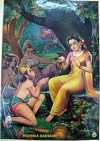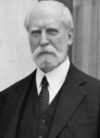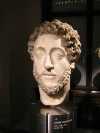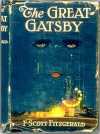 An uninhabited area located high in the Indian Himalayas, Roopkund is best known as the home of Skeleton Lake, where in 1942 a park ranger made a startling discovery—a mass grave containing the remains of some 300 to 600 people. Using radiocarbon dating, scientists traced the skeletons to the 9th century. Though people initially believed the dead were victims of landslides, an epidemic, or a blizzard, further examination of the skulls revealed that the people died in what unusual way? Discuss
An uninhabited area located high in the Indian Himalayas, Roopkund is best known as the home of Skeleton Lake, where in 1942 a park ranger made a startling discovery—a mass grave containing the remains of some 300 to 600 people. Using radiocarbon dating, scientists traced the skeletons to the 9th century. Though people initially believed the dead were victims of landslides, an epidemic, or a blizzard, further examination of the skulls revealed that the people died in what unusual way? Discuss
Source: The Free Dictionary
 Buchenwald was one of the first and largest concentration camps in Nazi Germany. As US forces closed in on the camp near the end of WWII, the Nazis began evacuating its prisoners, forcing them on “death marches” during which an estimated 13,500 were killed. On April 9, inmates at the camp used a makeshift radio transmitter to inform the Allies about the evacuations and beg for help. What did the prisoners do when they received word that the Americans were coming to liberate them?
Buchenwald was one of the first and largest concentration camps in Nazi Germany. As US forces closed in on the camp near the end of WWII, the Nazis began evacuating its prisoners, forcing them on “death marches” during which an estimated 13,500 were killed. On April 9, inmates at the camp used a makeshift radio transmitter to inform the Allies about the evacuations and beg for help. What did the prisoners do when they received word that the Americans were coming to liberate them? 
 Hughes was an American statesman and jurist. He served as governor of New York and as a Supreme Court justice before losing the 1916 presidential race, one of the closest in US history. It has been reported that, on the night of the election, Hughes went to bed believing he had won. According to the story, a reporter later called and was told that “the president is asleep,” to which he responded, “When he wakes up, tell him he isn’t the president.” What did Hughes do after losing the election?
Hughes was an American statesman and jurist. He served as governor of New York and as a Supreme Court justice before losing the 1916 presidential race, one of the closest in US history. It has been reported that, on the night of the election, Hughes went to bed believing he had won. According to the story, a reporter later called and was told that “the president is asleep,” to which he responded, “When he wakes up, tell him he isn’t the president.” What did Hughes do after losing the election?  The son of Marcus Aurelius, Lucius Aurelius Commodus Antoninus was a Roman emperor who ruled from 180 to 192 CE—a period some historians view as the beginning of the empire’s decline. Though his reign was relatively peaceful, Commodus was a tyrant who spent lavishly on gladiatorial combats, persecuted the Senate, and even renamed Rome after himself. He fancied himself a gladiator, frequently battling both men and animals, and considered himself the reincarnation of what mythical hero?
The son of Marcus Aurelius, Lucius Aurelius Commodus Antoninus was a Roman emperor who ruled from 180 to 192 CE—a period some historians view as the beginning of the empire’s decline. Though his reign was relatively peaceful, Commodus was a tyrant who spent lavishly on gladiatorial combats, persecuted the Senate, and even renamed Rome after himself. He fancied himself a gladiator, frequently battling both men and animals, and considered himself the reincarnation of what mythical hero?  Considered to be Fitzgerald’s masterpiece, The Great Gatsby is a devastating critique of the American Dream and materialism at the height of the Roaring Twenties. It is the story of a bootlegger, Jay Gatsby, whose obsessive dream of wealth and lost love is destroyed by a corrupt reality. Today used as required reading in many high schools, the book has been cited as the paragon of the Great American Novel. Why did Fitzgerald dislike the title, and what did he want to call his novel?
Considered to be Fitzgerald’s masterpiece, The Great Gatsby is a devastating critique of the American Dream and materialism at the height of the Roaring Twenties. It is the story of a bootlegger, Jay Gatsby, whose obsessive dream of wealth and lost love is destroyed by a corrupt reality. Today used as required reading in many high schools, the book has been cited as the paragon of the Great American Novel. Why did Fitzgerald dislike the title, and what did he want to call his novel?